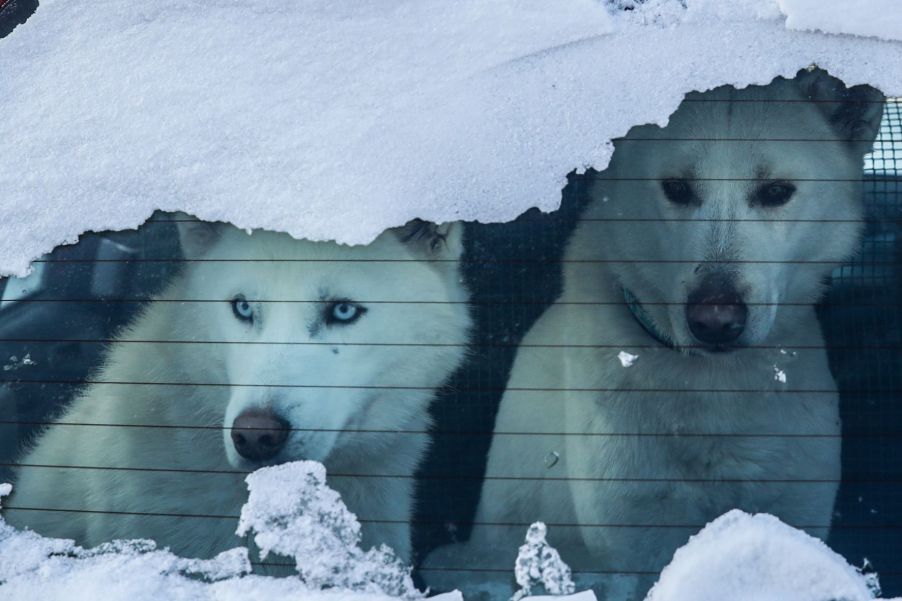
It’s Dangerous for Dogs and Cats to Ride in a Car in Cold Winter Weather
If you consider the dangers for dogs and cats riding in cars, you might think about the hot summer months when a car can quickly overheat. However, the winter season is an additional car safety concern for pets. If not mindful, it can be dangerous for dogs and cats to ride in a car in cold winter weather.
Risk of hyperthermia for dogs and cats in a car during cold winter weather

Looking at the thick layer of fur on your dog or cat, it can be easy to mistakenly think that it is safe for them to stay in a cold car. However, a general rule of thumb is that if it’s too cold for you, it’s too cold for your pet as well.
Cars have minimal insulation. While a car can protect your pet from wind, sleet, and snow, it does little to protect them from cold temperatures. According to the American Society for the Prevention of Cruelty to Animals (ASPCA), “cars can act as refrigerators that hold in the cold and cause animals to freeze to death.” Even with a one-degree temperature drop below normal levels, your dog or cat can get hypothermia.
How to prevent hypothermia of a pet in your car during the winter

According to ASPCA and Bankrate, there are several measures that you take to prevent your dog or cat from getting hypothermia in a cold car during the winter:
- If you leave your pet inside of a car, be brief with your time away from the car
- Ask if a store allows pets to come inside
- Use a “pet pod,” or a lockable pet kennel that regulates the temperature
- Place your orders at a store ahead of time and use either curbside delivery or store “pickup” options
- Get dog or cat “booties” for their paws and “jackets” for their bodies
- Keep your pets well-fed to provide a “warming” source of energy
- Leave your dog or cat at home
It’s also important to watch out for the danger signs of hyperthermia for dogs and cats. This includes lethargy, paleness, shivering, loss of coordination, and shallow breathing. If you see any of these signs after your pet is out in the cold, be sure to contact a veterinarian as soon as possible.
Antifreeze and other dangers for dogs and cats during the winter
Another dangerous thing for dogs and cats during the winter months is antifreeze, which is toxic to them, according to ASPCA. Antifreeze is especially problematic, for some animals are attracted to it. If you see antifreeze pooled up on the ground, clean it up. Also, as an alternative, use animal-friendly antifreeze formulations that contain propylene glycol instead of ethylene glycol.
Also, you want to watch out for road salt, which can be toxic to dogs and cats as well. After your dog or cats go outside, check the paws for road salt, antifreeze, or any other foreign substance that can be harmful to them.
For a warm and sheltered place to relax when it’s cold, cats sometimes crawl up inside cars. Before starting your car, either knock on the hood or lightly tap the horn a couple of times. Also, you can put some peppermint on some cotton balls, place them inside of cans and then put them in the engine bay. Cats and other animals don’t like the smell of mint, so it should be enough to keep them out of the mechanical components of your car.


